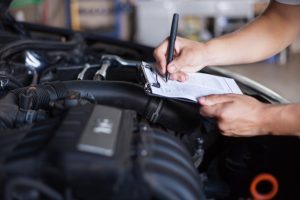
If you feel like you know too many people who have been in bad automobile accidents, or seem to hear about them on the news every day, you’re not alone. Sadly, with so many vehicles on the roads these days, and so many drivers being over the legal limit on substances, too tired to concentrate, displaying road rage, driving distracted, or otherwise exhibiting dangerous driving behavior, millions of accidents happen every year. Many of these crashes go on to severely injure those involved or to claim lives.
However, another cause of more accidents than you might have realized (one that has been getting more frequent in recent years) is defective vehicles and related equipment. Automotive recalls have become increasingly common, as safety restrictions have tightened and more defects are found.
If you want to keep you and your family, plus pedestrians, animals, and others safe at all times, read on for what you need to know about vehicle recalls in this country, and what you can do if your car, motorbike, truck, campervan or piece of equipment turns out to be faulty.
Why the Rise in Recalls?
There are multiple reasons why recalls have been rising over recent times. One of the key reasons is that monitoring of vehicle manufacturing, faults, and repairs is done much more closely than in the past. As well, there are now harsher penalties in place for manufacturers. This means that companies are more willing to institute recalls voluntarily, as they want to avoid as much negative publicity as possible (especially that which can arise from a mandated recall).
Another reason for the rise in recalls is that, in the last few years, there has been an unprecedented growth in the number of new vehicle models introduced to the market. (Generally the most risky times for recalls to happen are in the first few years after new models are released on to the market.) Furthermore, nowadays manufacturers are using increasingly complex components, which can lead to more potential vehicle faults, and additional recalls as a result.
The digital age is also a contributing factor to the growing number of recalls. With so many vehicles containing a lot of technology now, particularly tech that controls key systems, vehicles are more complex and open to new dangers. While technology in vehicle design is there to create safer products, and often does, it can also lead to additional potential issues.
How and When Recalls Happen
Vehicle recalls, or those on related equipment such as tires and child car seats, occur when products are found to have a safety-related defect, or when they don’t comply with a Federal Motor Vehicle Safety Standard and don’t meet minimum performance requirements.
The motor vehicle standards cover a wide range of things, from air bags and brakes, to child restraints, steering and more. Safety defects can crop up in finished products, as well as components and materials. Examples include air bags that don’t deploy when they’re meant to (or that deploy at the wrong times or too forcefully), car jacks that collapse when people are working on vehicles, or accelerator controls breaking or sticking.
Recalls can come about when manufacturers voluntarily initiate one, or when the Department of Transportation’s National Highway Traffic Safety Administration (NHTSA) investigates and finds a defect present in a product. This can come about either because they have been alerted to an issue by a manufacturer, or because a member of the public or other person has submitted a report.

What You Can Do Next
Manufacturers have to notify vehicle/equipment owners about safety issues, as well as dealers and distributors. They must also remedy any product defects at no charge to the owners of the products. These steps are monitored closely by the NHTSA to ensure that proper action is taken as and when required.
If you’re worried that your vehicle or a corresponding piece of equipment has a safety defect that hasn’t been noticed, report your concerns to the NHTSA as soon as possible. You can do this online, via the www.safercar.gov website, or phone the department or write them a letter.
Make sure you include a variety of necessary information when you contact the NHTSA, such as the make, model, and manufacturer of the product in question, plus the year it was built. You also need to take note of the system, part, or assembly that has been affected. From there, the NHTSA and the relevant manufacturer(s) will investigate to see if a defect is present, and if a recall is required.
If you own a product that is part of a recall, don’t delay in having it looked at so that the problem can be addressed ASAP. If you or a family member is involved in any type of accident that stems from the defective vehicle or equipment, you may be liable for compensation too. It is wise to get some legal advice from a specialist in this area of the law, such as these Houston personal injury lawyers.















